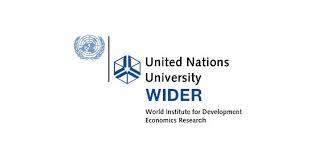
Press Release:
New research published by UNU-WIDER today warns that the economic fallout from the global pandemic could increase global poverty by as much as half a billion people, or 8% of the total human population. This would be the first time that poverty has increased globally in thirty years, since 1990.
The authors of the UNU-WIDER study - Andy Sumner and Eduardo Ortiz-Juarez of King’s College London and Chris Hoy from Australian National University - find that a setback of this size would reverse a decade of global progress on poverty reduction.
This study shows that the achievement of the 2030 Agenda, and in particular, the SDGs on no poverty and zero hunger, is under considerable threat. The need of the hour is to bring together development agencies, national governments, civil society and the private sector in a global effort to protect the livelihoods and lives of the poorest of the poor in the Global South.
– Kunal Sen, Director of UNU-WIDER.
The results of the study have galvanized concern for vulnerable communities around the world. They are being cited by Oxfam International, today, in its call to world leaders to implement “an Economic Rescue Plan for All, to keep poor countries and poor communities afloat,” ahead of key meetings of the World Bank and International Monetary Fund (IMF) and G20 Finance Ministers’ next week.
Oxfam is calling on world leaders to agree on an Emergency Rescue Package of 2.5 trillion USD paid for through the immediate cancellation or postponement of 1 trillion in debt repayments, a 1 trillion increase in IMF Special Drawing Rights (international financial reserves), and an additional 500 billion in aid.
The WIDER Working Paper estimates an outcome of a 400-600 million persons increase in global poverty given a scenario in which per capita consumption contracts by 20%. The study also estimates poverty increases for mitigated contractions of 10% and 5% and shows the impacts on poverty by region, as well as globally.
Andy Sumner, Professor of International Development at King’s College London and a Senior Non-Resident Research Fellow at UNU-WIDER, said of the research:
“We were surprised at the sheer scale of the potential poverty tsunami that could follow COVID-19 in developing countries. Our findings point towards the importance of a dramatic expansion of social safety nets in developing countries as soon as possible and - more broadly - much greater attention to the impact of COVID in developing countries and what the international community can do to help”.
https://www.wider.unu.edu/publication/estimates-impact-covid-19-global-p...
Our estimates are based on three scenarios: low, medium, and high global contractions of 5, 10, and 20 per cent; we calculate the impact of each of these scenarios on the poverty headcount using the international poverty lines of US$1.90, US$3.20 and US$5.50 per day.
Our estimates show that COVID poses a real challenge to the UN Sustainable Development Goal of ending poverty by 2030 because global poverty could increase for the first time since 1990 and, depending on the poverty line, such increase could represent a reversal of approximately a decade in the world’s progress in reducing poverty.
In some regions the adverse impacts could result in poverty levels similar to those recorded 30 years ago. Under the most extreme scenario of a 20 per cent income or consumption contraction, the number of people living in poverty could increase by 420–580 million, relative to the latest official recorded figures for 2018.
Related content
Read the Press Release: COVID-19 fallout could push half a billion people into poverty in developing countries










Add new comment